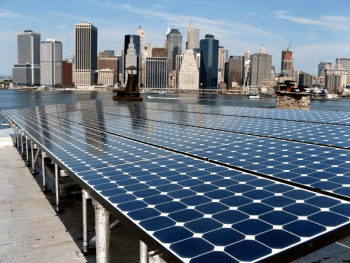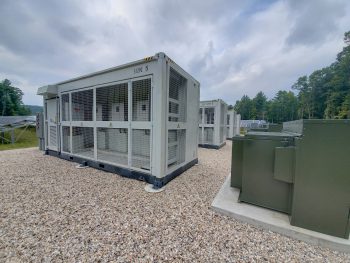Solar Industry Comments on Mass. Legislature’s Passage of Omnibus Energy Bill
BOSTON, Mass. and WASHINGTON, D.C. – Today, the Solar Energy Industries Association (SEIA) commented on the Massachusetts Legislature’s passage of a bill that requires the state’s largest electricity utility to refile its plan to charge extra fees to solar adopters and raises the state’s renewable energy goal.
The bill addresses a decision by the Massachusetts’ Department of Public Utilities (DPU) that would have allowed Eversource to impose complex fees on consumers who go solar. The legislation also encourages greater use of solar state-wide, raising the state’s Renewable Portfolio Standard by an additional 2 percent per year through 2029.
However, the bill failed to raise the statewide caps on net metering for non-residential customers, which has been critical to solar success in the Commonwealth. The caps have been hit in three utilities’ service territories, stalling projects throughout the state. The bill is now headed to the Governor’s desk.
Following is a statement from Sean Gallagher, SEIA’s vice president of state affairs:
“Massachusetts lawmakers showed that solar consumers should not be punished with complicated fees, rejecting a decision that would have halted solar growth in the Commonwealth. Allowing utilities to discriminate against homeowners simply for adding solar to their roofs is always the wrong decision, which is why it hasn’t worked in other states.
“However, the bill failed to raise the net metering caps, a move that means some Bay State businesses and communities who want to go solar are unable to do so. Across the state, solar projects, jobs and millions of dollars of investment remain stalled. Nevertheless, the bill overturns a wayward ruling that would have hurt consumers and raises the state’s renewable energy goals, which is why the Governor should sign this bill.”
Massachusetts ranks sixth in the country for most solar installed, with 2,137 megawatts, enough to power 355,000 homes. Approximately 8.6 percent of the state’s electricity comes from solar energy. The Bay State’s solar industry employs 11,530 people, second most among states.
###
About SEIA®:
Celebrating its 44th anniversary in 2018, the Solar Energy Industries Association® is the national trade association of the U.S. solar energy industry, which now employs more than 250,000 Americans. Through advocacy and education, SEIA® is building a strong solar industry to power America. SEIA works with its 1,000 member companies to build jobs and diversity, champion the use of cost-competitive solar in America, remove market barriers and educate the public on the benefits of solar energy. Visit SEIA online at www.seia.org.
Media Contact:
Morgan Lyons, SEIA’s Communications Manager, mlyons@seia.org (202) 556-2872



